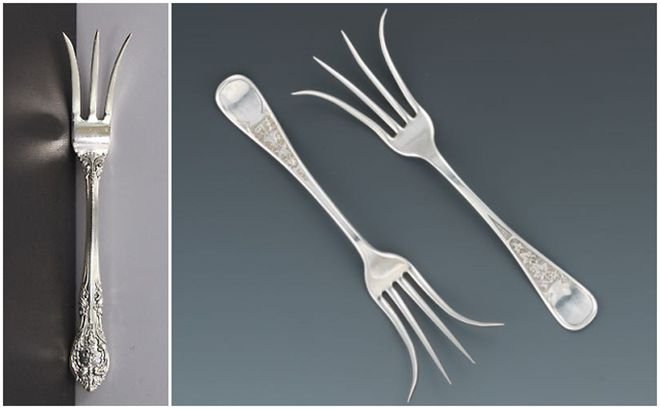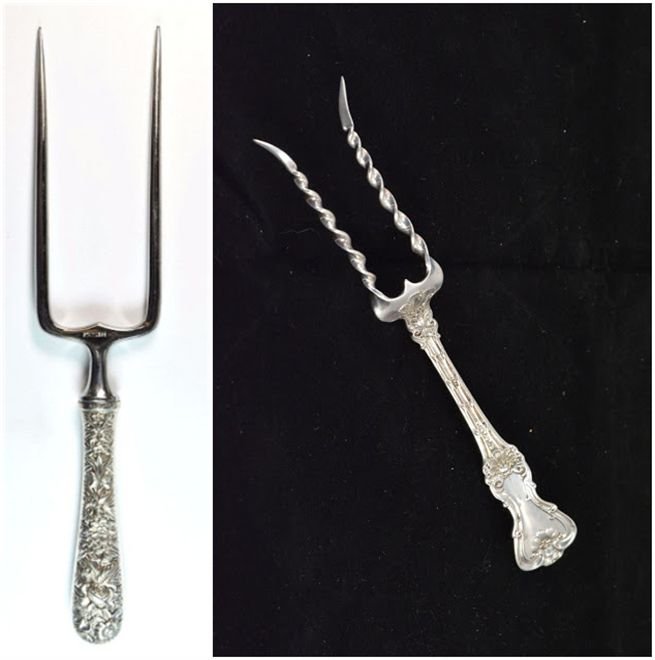Your cart is currently empty!
How to Identify Authentic Antique Silver Fish Forks?
How to Identify Authentic Antique Silver Fish Forks?
🧭 Introduction
Antique silver fish forks are more than beautiful—they’re part of culinary history. But how can you tell a genuine vintage piece from a reproduction? In this guide, we’ll walk you through the key signs of authenticity, markings, materials, and how to appraise their value.
🕰️ What Makes a Fish Fork Antique?
By most standards, any item over 100 years old qualifies as antique. Many silver fish forks from the 19th and early 20th centuries are highly collectible today.

🔎 Look for These Authenticity Markers
1. Hallmarks and Stamps
Silverware typically has hallmark symbols indicating:
- Purity (e.g., “925” or “Sterling”)
- Maker’s mark (like Gorham’s anchor or Tiffany’s “T&Co”)
- Date letter or country symbol (lion passant = English sterling)

2. Signs of Handcrafting
- Irregularities in engraving or detailing
- Visible tool marks under magnification
- Heavier weight than modern reproductions
3. Style and Pattern
Popular antique styles include:
- Victorian floral motifs
- Art Nouveau curves
- Art Deco geometrics
Use pattern guides from companies like Wallace or Reed & Barton to identify the era.
📦 Where to Find Authentic Silver Fish Forks
- Estate sales and auctions
- Reputable antique dealers
- Online vintage marketplaces (e.g., 1stDibs, Ruby Lane)
- Specialist stores like FishForks.com with verified provenance
💰 Understanding Value
| Factor | Impact on Value |
|---|---|
| Maker and rarity | Christofle or Tiffany often command higher prices |
| Purity of silver | Sterling (92.5%) is more valuable than silver-plated |
| Condition | Tarnish is okay, but deep scratches or bent tines reduce worth |
| Completeness | Full sets or matched forks and knives fetch a premium |
🛡️ Tips for Collectors
- Keep documentation (receipts, maker info)
- Store in a dry, tarnish-resistant case
- Never polish off hallmarks—these prove authenticity
🏁 Conclusion
Antique silver fish forks are not only gorgeous—they’re historical treasures. With a bit of knowledge and a careful eye, you can build a collection that’s as valuable as it is beautiful.
Views: 1
Leave a Reply